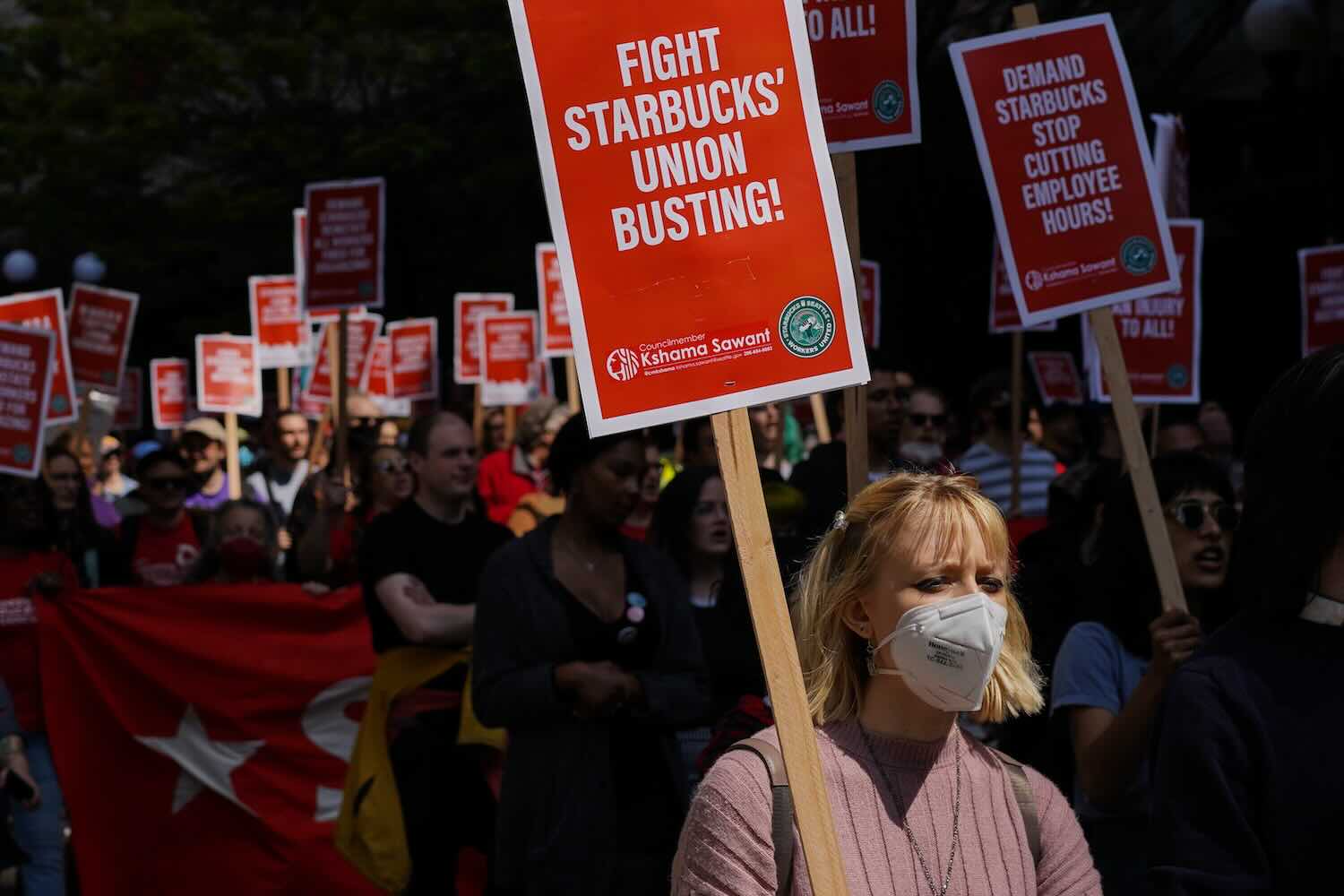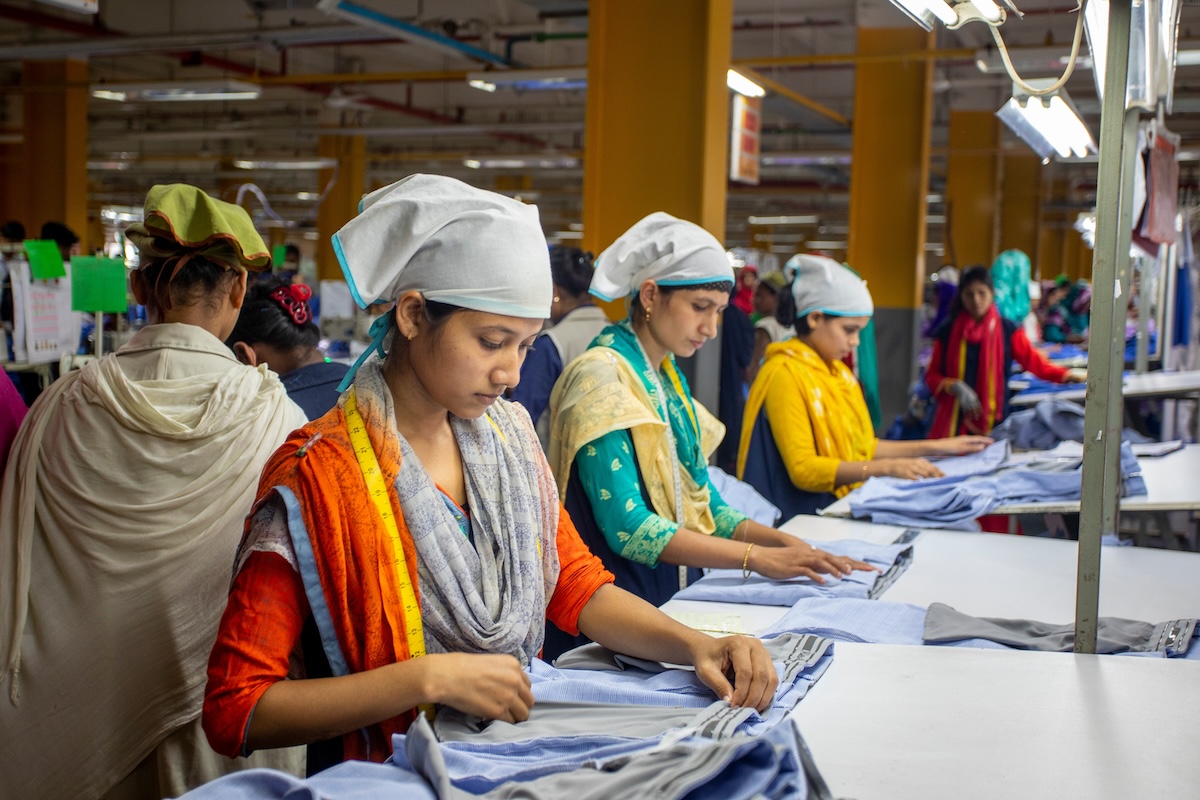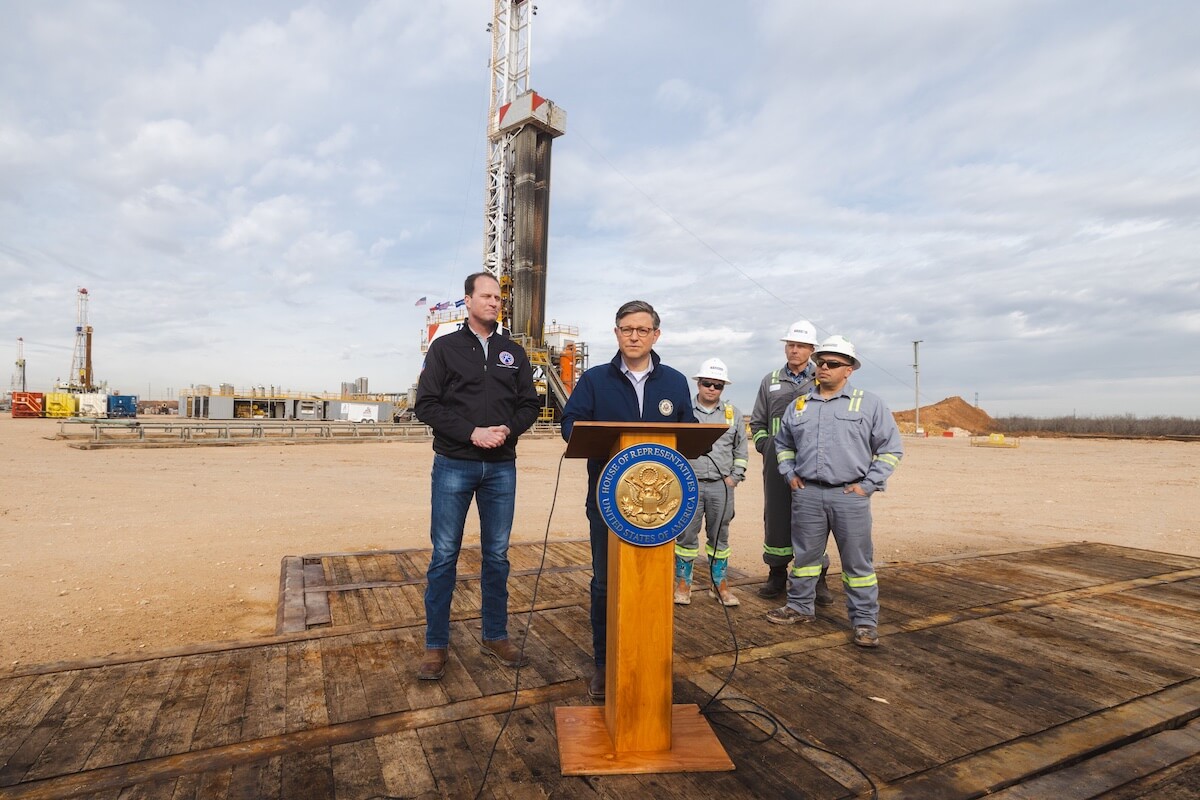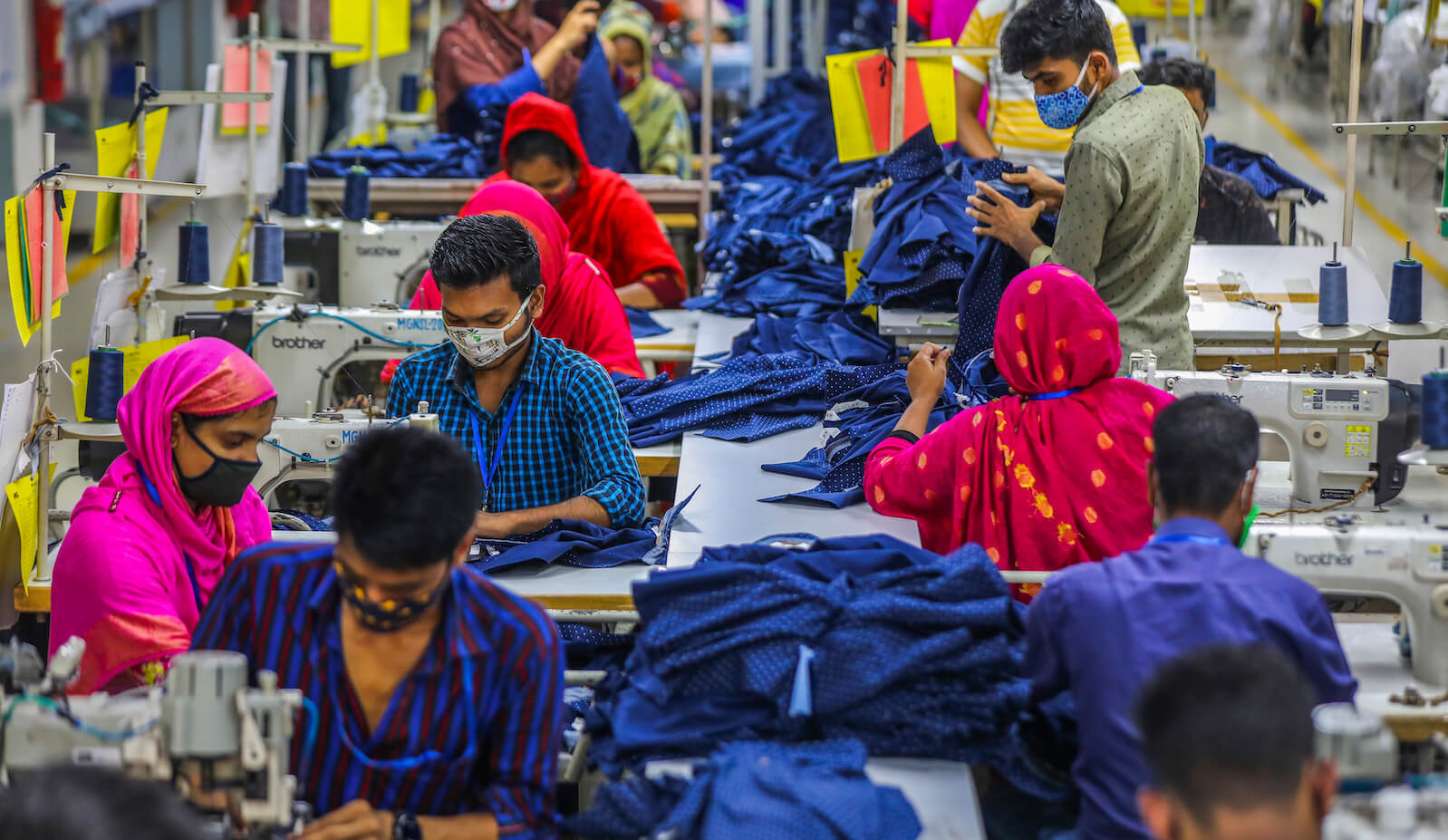Proxy season – the annual corporate meetings clustered from February through May where directors are re-elected and shareholders vote, by “proxy,” on issues before boards – always features innovations that reflect new or growing investor concerns. Among the new issues surfacing this year, for example, are corporate practices around artificial intelligence, biodiversity, and political activity.
But there’s a deeper shift afoot. As global planetary boundaries are challenged, investors are “swimming upstream” into interconnected systems issues. This year, more shareholders are embracing a “systems-first” approach that puts the focus on how companies’ actions affect the broader health of the economy.
Among the more than 500 shareholder resolutions addressing material financial sustainability risks at corporations are more than five-dozen that make “system-level” or “beta stewardship” arguments. The number of such proposals, which look at risks to portfolio- and economy-wide health as opposed to solely focusing on an individual company’s performance – has doubled from last year, according to The Shareholder Commons.
The nonprofit’s new “Portfolios on the Ballot 2024” report identifies proposals targeting systemic risks posed by issues ranging from climate change and biodiversity to income and racial inequality, public health, disinformation, and corporate influence.
“There are lots of things that companies do – from overuse of antibiotics to not addressing racial disparities in their workforce and supply chains – that are pretty harmful to the economy,” said The Shareholder Common’s Rick Alexander said at a presentation last week about the nonprofit’s new proxy voting initiative.
Alexander describes a “loss of value chain” where companies externalize costs, which reduces global economic performance, which in turn threatens long term market performance, or beta. “And that,” he says, “threatens the performance of your diversified portfolio.”
The group’s new report and online toolkit is intended to help investors vote in the interests of their overall portfolios.
Beta trumps alpha, macro trumps micro
This attention to system-level risks at this year’s corporate annual general meeting season is noteworthy and welcome. Highly diversified “universal owners” have long horizons and broad existential risk lenses. On the back of increases in institutional ownership and the prevalence of passive investing, these owners are adopting a fiduciary capitalism mindset that is increasingly expressed in “system-level investing” approaches, where the intentional investment target is the overall health and stability of global capital markets and economies.
In their seminal 2021 book, Beyond Modern Portfolio Theory, James Hawley and Jon Lukomnik underscored that at least 75% of investment portfolio return arises from broad systemic forces that lift, or hinder, the broader market. In short, the beta of the market swamps the alpha of single companies in terms of contribution to return.
However, a few bad corporate apples can easily spoil a whole barrel. To the degree they spew negative externalities into the economy and environment writ large, companies diminish the health of earth systems, reduce common economic prosperity, and drag down all investment portfolios.
System-level stewardship directed at those companies is critical.
Unlike traditional stewardship, it is about more than just the safeguarding and nurturing of assets: beta stewardship seeks to enhance the fundamental social and environmental systems that underpin the wealth creating potential of these assets. It acknowledges investors’ obligations to manage the financial worth of their portfolios, but also calls on them to mitigate risks to underlying earth and human systems as well.
Trickle up versus trickle down
Fair wages and income inequality is a good example of a system-level issue. UK-based ShareAction is working with The Shareholder Commons on a “living wage” campaign, addressing the reality that, while poverty wages can increase profits at some companies, they externalize costs that burden investors’ diversified portfolios.
Asset manager Legal & General Investment Management and asset owner The Nathan Cummings Foundation have filed proposals at American mega retailers Walmart and Target seeking fair wages and targeting economic inequality. From a single-company perspective, maximizing profits by paying workers a below living wage might make sense. But from a systems perspective and for universal owners income inequality is an urgent and growing economic issue.
“Poverty wages don’t just undermine workers: income inequality penalizes the national and global economies with losses that will burden investment portfolios for years to come,” says the Shareholder Commons. Increased wages lead to productivity, consumption and healthcare gains which compound.
The Shareholder Commons flagged 11 proposals concerning the systemic risk posed by unfair wages and inequality.
Admittedly, some investors may “experience some cognitive dissonance as they try to move
from the notional imperative of enterprise-value maximization to an understanding that economy-wide value is paramount to fiduciary duty,” The Shareholder Commons wrote in its recent “Guardrail on Poverty Wages.” To move from a pure company to a system-level risk and opportunity frame involves fresh thinking relative to the dominant neo-liberal economic mindset of yesteryear.
In some sense these are “trickle-up” proposals backed by economic research which finds that paying a fair wage to labor results in a faster, not slower, growing economy.
Climate risk
Climate change is another glaring example of a systemic risk. While individual companies may be able to improve profits, in the short term at least, by spewing carbon well beyond the thresholds called for under the Paris climate accord, a global failure to reduce emissions and transition to net-zero could shave 30% from the average portfolio by 2050.
Not surprisingly, climate and biodiversity make up almost half of the systems-level proposals flagged in Portfolios on the Ballot.
A proposal filed by grassroots group Follow This, for example, asks oil giant Shell to align its mid-term emissions reduction target with the Paris accord. The group urges investors “who seek to ensure a long-term future for the Company and to protect the value of their entire investment portfolios” to vote for the proposal.
In a proposal filed at Home Depot, Domini Impact Investments emphasizes the economy-wide dangers of losing biodiversity. The firm is requesting that Home Depot assess and report on the retailer’s impact and dependency on biodiversity across the full value chain of the products it sells.
About half of global GDP is highly dependent on nature. The collapse of ecosystem services – provided by forests, oceans, and wetlands – could blow a $2.7 trillion hole in annual global GDP, says the World Bank.
Public health
To combat the spread of disease and illness (think Covid) new, often amazing, drugs are discovered, synthesized, and distributed. The discovery of penicillin in the early 20th century, for example, brought enduring health benefits to society.
However, too much of a good thing can threaten that progress. Through excessive use of antibiotics, in our own bodies and in the meat we eat, humans develop resistance, making ultimate use of key antibiotics ineffective when most needed to combat disease.
The overuse of medically important antimicrobial drugs during the husbandry of animals may goose the profit margins and enterprise values of individual companies, but ultimately increases the costs of public health. It is a classic corporate versus public benefit tradeoff.
Antimicrobial resistance could lead to $100 trillion in additional healthcare costs by mid-century, and up to $3.4 trillion gross domestic product losses per year by 2030, warns the World Bank.
In 2021, Yum Brands, the parent corporation of KFC, Taco Bell and Pizza Hut, avoided a system-level proposal vote by striking a deal with shareholders to issue a company report focused on AMR.
This year AMR-related shareholder proposals are on the ballot at McDonald’s, Restaurant Brands International (Burger King, Tim Hortons and Popeyes) and Yum Brands. By sourcing meat from producers that use large amounts of antimicrobial drugs in their animal feed, these companies are effectively “redistributing” antimicrobial drugs on a widespread basis via their business activities.
The proposals urge the companies and their board directors to adopt World Health Organization guidelines to keep antimicrobial use within sustainable parameters.
AI and disinformation
Shareholders of Alphabet (Google) and Meta (Facebook) – two of the Magnificent Seven technology poster-children – will vote on disinformation and artificial intelligence proposals.
A proposal before Meta shareholders filed by Arjuna Capital argues that widespread concern about generative AI used by Meta’s tools and disseminated across its platforms “threatens to amplify misinformation and disinformation globally, posing serious threats to the company, human rights, and democratic processes.”
It calls for more vigorous content moderation and assessment of risks to the company and public welfare presented by Meta’s “role in facilitating misinformation and disinformation disseminated or generated via generative Artificial Intelligence.” Arjuna also requests a report on what steps the company will take to remediate harm and on how it will measure success.
AI resolutions are cropping up as the technology is rapidly adopted. But as Mari Schwartzer of The Shareholder Commons points out, “while other proposals typically focus on the enterprise value of the company, for example, by highlighting the reputational risks of AI blunders,” the proposals featured in Portfolios on the Ballot “call out the externalized costs of AI and highlight how improved oversight protects diversified shareholders from the systemic risks posed by a reckless adoption of AI.”
Portfolios on the ballot
The upshot is, according to the view of the Shareholder Commons and others, risks and returns of entire portfolios matter a lot more than those of single companies. Other systems-oriented thought leaders not only agree with this thinking, but go even further, arguing that the central and intentional goal of system-level investing is to target the health and stability of the entire economy and society, as an end goal in itself, thereby also targeting those stakeholders who do not own shares.
These systems-level campaigns in effect argue that borrowing from Peter (one company) to pay Paul (another) does not benefit universal owners. Many provide purely pecuniary rationales for restricting profitable corporate practices that despoil global commons. Others use language which go beyond the logic of pure coin.
They also highlight conflicts of interest that directors face when serving their own shareholders: what might be good for the bottom line of Meta or Alphabet might not always be good for the bottom line of the shareholders of Meta and Alphabet. To fully serve shareholders, boards and management should widen company lenses and actions about their production of positive and negative externalities.
In late 2023 the PRI, CFA Institute and the Global Sustainable Investment Alliance coalesced around Definitions for Responsible Investment and stated: “The concept of overall value for clients and beneficiaries is multifaceted. It includes the market value of the entire portfolio (as opposed to individual holdings or individual mandates); the long-term value-creation capabilities of firms and economies; and the common environmental, natural, intellectual, social, and institutional assets that underpin all economies.”
Shareholders are rising this season to support just such a portfolio or beta stewardship approach – and we will all be better for it.











